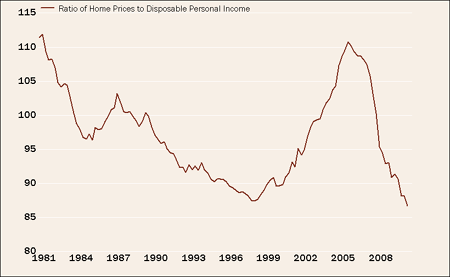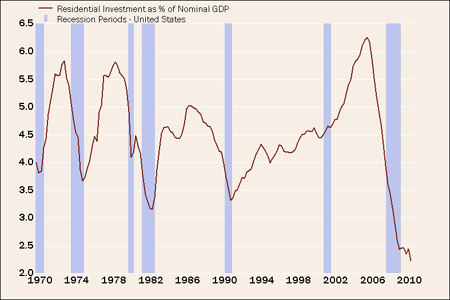Many analysts believe that the overall economy cannot improve as long as residential housing prices remain weak and/or continue to decline. Schwab’s chief investment strategist, Liz Ann Sonders, who always provides incisive commentary, offers some compelling insights on why a weak housing market will not impede economic growth.
In her latest commentary, Ms. Sonders says that residential real estate markets are finding a bottom. Recovery or continued malaise in housing markets will vary by location based on local economies, as can be seen in the latest housing stats from the S&P/Case-Shiller Home Price Indices. Markets such as Washington DC, Boston and Los Angeles are 54% to 87% above January 2000 price levels. Other markets such as Detroit, Las Vegas and Phoenix are at or below price levels seen in 2000.
Although the number of foreclosures this year is expected to reach 1.2 million homes, RealtyTrac is forecasting that 2011 will be the peak for foreclosures. Approximately 1 million homes were foreclosed on in 2010, with more than half occurring in the five states of California, Florida, Arizona, Illinois and Michigan. The market clearing mechanism of foreclosures and a decrease in surplus inventory will eventually cure weak housing markets
Besides the low level of mortgage rates, “the traditional measures of housing affordability have improved meaningfully”. Housing affordability is at all time peak and the ratio of home prices to income is at a 30 year low.
Many analysts think the economy can’t recover with a weak housing market. Ms. Sonders thinks the economy will grow as other industries improve and account for a larger share of GDP. Adding weight to this theory are forecasts for continued weak residential housing markets along with economic growth approaching 4% in 2011. Residential real estate now represents only around 2% of GDP.



Speak Your Mind
You must be logged in to post a comment.